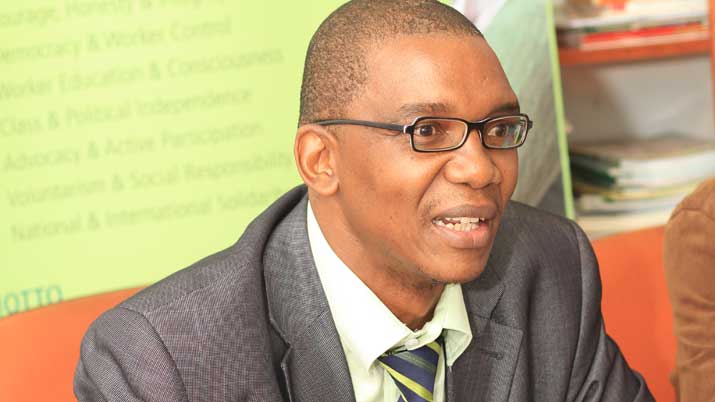Information reaching The Gazette isthat the Botswana Federation of TradeUnions (BFTU) affi liates are dividedover proposed constitutional amendments.The bone of contention, it is alleged, isthe issue of proportional representationwhereby bigger unions such as the BotswanaMine Workers Union (BMWU) andthe Botswana Power Corporation WorkersUnion (BPCWU) demand more representationin the general council and delegatecongress in proportion to their membersand subscriptions.The issue split the federation in 2010leading to the disaffi liation of fi ve mainpublic sector unions which subsequentlyformed the Botswana Federation of PublicSector Unions (BOFEPUSU). Three yearsdown the line, proportional representationis still haunting the BFTU amid fears offurther instability and possible split or disaffiliation.
The Federation’s Secretary for InternationalRelations, Edward Tswaipe saidin an interview on Monday that BFTUamended its constitution during a specialdelegate congress last week. He said thatthere were four key issues in the proposedamendment by the general council.The issues included amongst others; theproposed new organizational structure, thecomposition of the executive board, thepropositional representation in the delegatecongress and the issue of genderwomenaffairs council. “We have agreedin principle on three issues but differed onthe details,” said Tswaipe, adding that theonly item which they did not agree both inprinciple and details was the compositionof the executive board.The Council had proposed to expand theexecutive board to accommodate new positionswith portfolios. The current board hasfi ve substantive principal offi cers and fi veadditional members without portfolio.
Thenew constitution wanted the board to havetwo deputy presidents, with the second onebeing a woman. According to Tswaipe, thecongress rejected the proposal and decidedthey should have one deputy and that itshould be a woman.On the proposed new organizationalstructure, the issue was whether BFTUshould be a federation structure of anyregistered union as it has been the case orwhether it should confi ne itself to industrialunions. In 2001 the congress took a resolutionthat unions should amalgamate intostrong industrial unions so that unions reducein number. The principle was acceptedby the congress, according to Tswaipe.“Currently there is an emergence ofcompany unionism globally. Of courseits advantage is that it is effective, but atthe same time it weakens the trade unionmovement.
The issue is that we still needstrong unions,” he noted.On the issue of propositional representation,Tswaipe said that the Council agreedon having equal number of delegates. Hehighlighted that in the past this has been acontroversial issue as there was a gap in therepresentation of the unions. He said thatthe 2010 constitutional amendment tried toclose the gap but the issue kept resurfacingas bigger unions believed it was unfair andundemocratic.Tswaipe dismissed allegations that therewere divisions over proportional representation.He said the only issue was that ofdominance which has always been there.Asked about the stance of BMWU andBPCWU, Tswaipe said “I don’t recall ofany individual stance by any union and theproportional representation is not opposed.There is just an issue of dominance whichhas always been there. Some unions complainof paying higher subscription fees,”he explained.Tswaipe said the constitution is still atdraft stage and said voting could not takeplace because the number of people whowere present was small.

